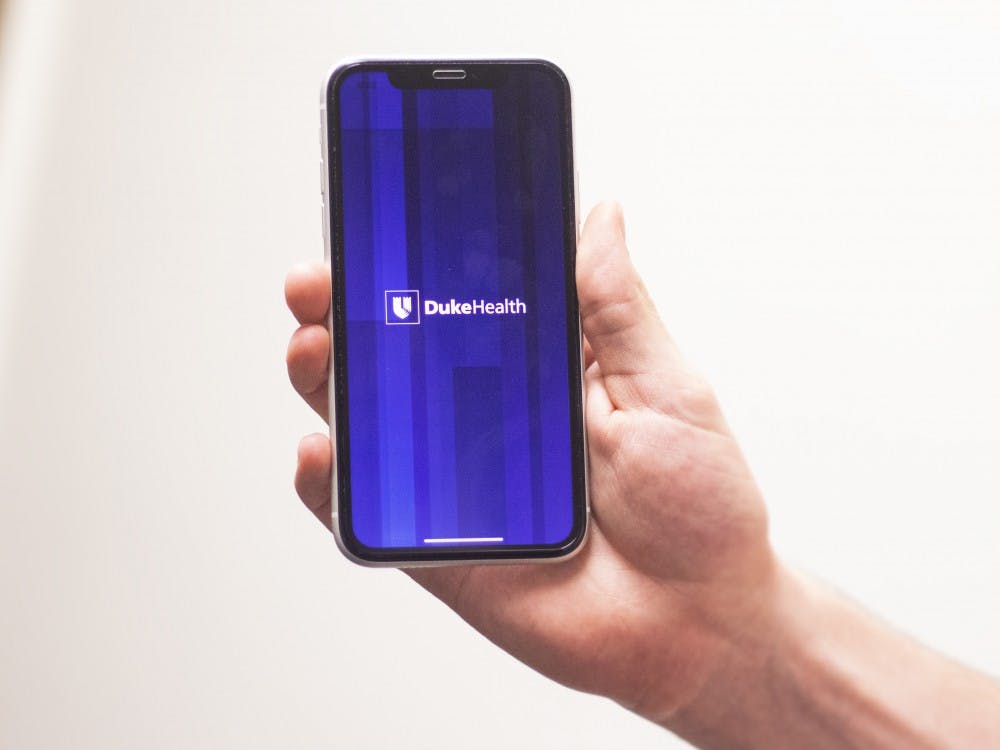Are you at least two years old and able to talk on the phone? Duke Health has a new option for you.
Duke Health has launched a new app that allows 24/7 access to urgent care providers for common ailments. Duke Health Anywhere, which is now available for iOS, Android and desktop, allows patients aged two or older to speak with medical professionals about common conditions including the pink eye, the common cold, nausea and vomiting.
Duke Health Anywhere is a collaboration between Duke Health, American Well and Online Care Group. These affiliates helped Duke set up the service and select providers to manage it.
The long-term goal of the plan is to teach providers about implementing telemedicine for physical, mental and behavioral health, and to educate patients about receiving these services.
This is all part of a wider trend of expanding health care accessibility for people who may be unable to seek treatment in a physical care setting, whether it be due to a busy schedule or health issues.
“[The app] is aligned with Duke’s vision of making care even more accessible and convenient to our patients, and reaching new patients not already engaged in primary or specialty care,” wrote Donna Phinney, director of the Duke Telehealth Office, in an email to The Chronicle.
Telehealth, or telemedicine, is the use of videoconferencing or other forms of digital communication to provide medical or therapeutic services from a distance, as well as to support health-related education, public health and health administration. The new app is not the first time that Duke Health has taken a digital approach to healthcare—in 2017, the emergency department began using telemedicine to reduce wait times at the hospital’s emergency department.
The app gives patients flexibility in when and how they get health assistance, as well as the option of after-hours assistance. Currently, Duke Urgent Care is only open from 8 a.m to 8 p.m. Through the app, health providers can provide immediate treatment and referrals for the aforementioned ailments in addition to allergies, coughs, influenza, diarrhea, skin conditions, runny noses and sinus congestion, sore throats and urinary symptoms. Conditions that require an in-person consultation are not covered and patients requiring emergency care are advised to call 911 or go to the nearest emergency room.
App users do not have to already be Duke patients to use the service. Each ten-minute visit is scheduled on a first-come, first-serve basis and costs $49, which must be paid upfront, as insurance is not accepted via the app.
Phinney explained that this fee could be an affordable alternative for patients with high-deductible insurance plans, who would be responsible for all costs if they went to a physical emergency room.
The release of Duke Health Anywhere is not Duke Health’s first foray into telemedicine—it comes after the development of the Duke Telestroke Network in 2013, which connects Duke neurologists with regional care partners in rural areas to provide consultations for potential stroke patients, and the Telemedicine in the Home program, which allows ALS patients in North Carolina to stay in contact with their providers when they can no longer travel.
North Carolina, in particular, has already established a two-to-three-year strategic plan for implementing telemedicine throughout the state, a project that Phinney and other Duke Health employees attended a roundtable for as part of the North Carolina Telehealth Roundtable Steering Committee.
Phinney wrote that Duke Health Anywhere will ideally have an impact on broader population health as well as individual wellbeing—American Well wrote on their website that telehealth can help providers manage health outcomes across large populations because it increases patient engagement and efficacy of care.
Get The Chronicle straight to your inbox
Sign up for our weekly newsletter. Cancel at any time.

Nadia Bey, Trinity '23, was managing editor for The Chronicle's 117th volume and digital strategy director for Volume 118.

